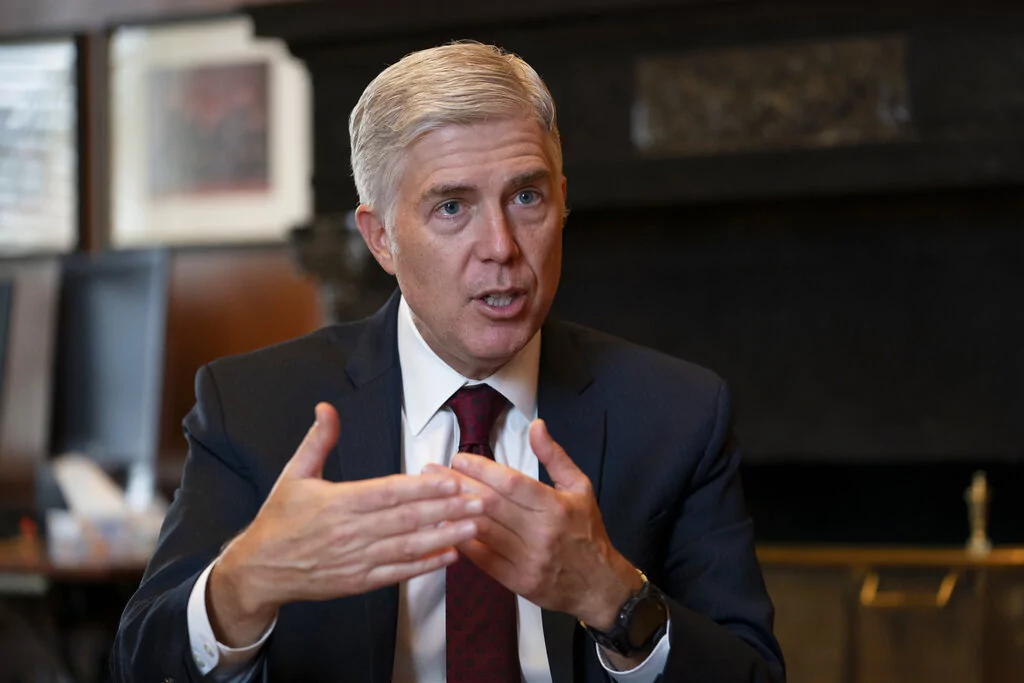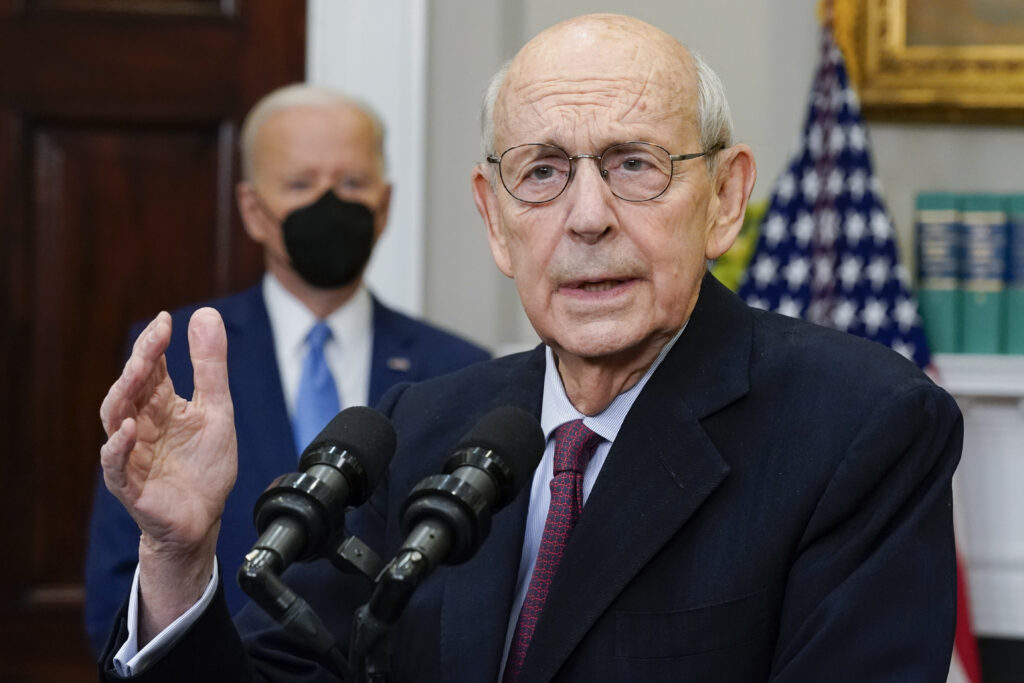
Two Supreme Court justices from near-opposite ends of the ideological spectrum sat down for a rare keynote discussion at the Federalist Society’s annual Antonin Scalia Memorial Dinner in Washington, D.C., discussing the “common ground” they share.
Justice Neil Gorsuch, the first justice nominated under President-elect Donald Trump, joined retired Justice Stephen Breyer, a nominee of former President Bill Clinton, to discuss administrative law and regulations. The discussion came at a time when public confidence in a Supreme Court dominated by a 6-3 Republican-appointed majority sunk to record lows following the overturning of Roe v. Wade two years ago.

“I think there’s a lot of common ground between you and me on this. Why do we care about regulatory reform? Why does it interest us? Why should it interest you?” Gorsuch said to a crowd of hundreds of lawyers and attendees at the Washington Hilton Thursday evening.
Breyer, who was on the high court when the justices sent the issue of regulating gestational limits for abortions back to the states, offered a range of advice to his now-former colleague on the high court, telling Gorsuch, one of six justices nominated by Republican presidents, that common ground is easier to find than some people believe.

“If you listen to someone you disagree with — and it may take a while — but if you listen long enough you’ll find something to agree on and maybe start there,” Breyer said.
The retired justice is known as the Supreme Court’s pragmatic member who, during his 28 years on the bench, often adhered to a judicial philosophy that “considers purposes and consequences” rather than a “highly detailed judicial-rules-based approach.”
The side-by-side discussion coincided with playful banter about a variety of topical subjects outside of the main discussion about regulations at a time when recent decisions by the Supreme Court’s majority have clawed back regulatory powers of the administrative state, moves broadly supported by conservative judicial advocates.
At one point, Gorsuch offered a token of sympathy for Peanut the squirrel, the sensational online story involving a pet rodent that was euthanized by officials from the New York Department of Environmental Conservation earlier this month, which garnered sympathy among Trump supporters and skeptics of the federal government.

“Raise your glass for Peanut the Squirrel, and ask yourself: Can we do better?” Gorsuch said, prompting roars of laughter from attendees of the dinner.
“My clerks have told me that an aspect of the Peanut story may involve a website that is just for fans … but Peanut was not involved in those activities,” Gorsuch added, a reference to the owners of Peanut who also partake in adult-only activities online.
Breyer retired in 2022 to pave the way for President Joe Biden to nominate Justice Ketanji Brown Jackson, a former public defender who has likewise provided a unique layer of individuality among the two other liberal Justices Elena Kagan and Sonia Sotomayor.
“So our major point here today is Neil, he has quite a few suggestions, at least some of which may help,” Breyer said, joking that “I’m not on that Court anymore, so I don’t have to decide.”
The unity speech between Breyer and Gorsuch, the latter of which follows an “originalist” judicial philosophy that calls for close adherence to the Constitution’s plain text, struck a similar tone to the series of public tours across the United States that Breyer and the late Justice Antonin Scalia used to host together. Scalia was considered one of the leading proponents of textualism that has inspired the judicial philosophy among the high court today.
CLICK HERE TO READ MORE FROM THE WASHINGTON EXAMINER
Breyer also emphasized that he does not always agree with every decision made by the high court, “nor does anybody, nor should anybody.”
Referencing advice once given to him by Clinton, Breyer said the “best advice” he ever received from the former president was this: “The applause dies away very fast, and you’re left with that job, and you better love it.”





